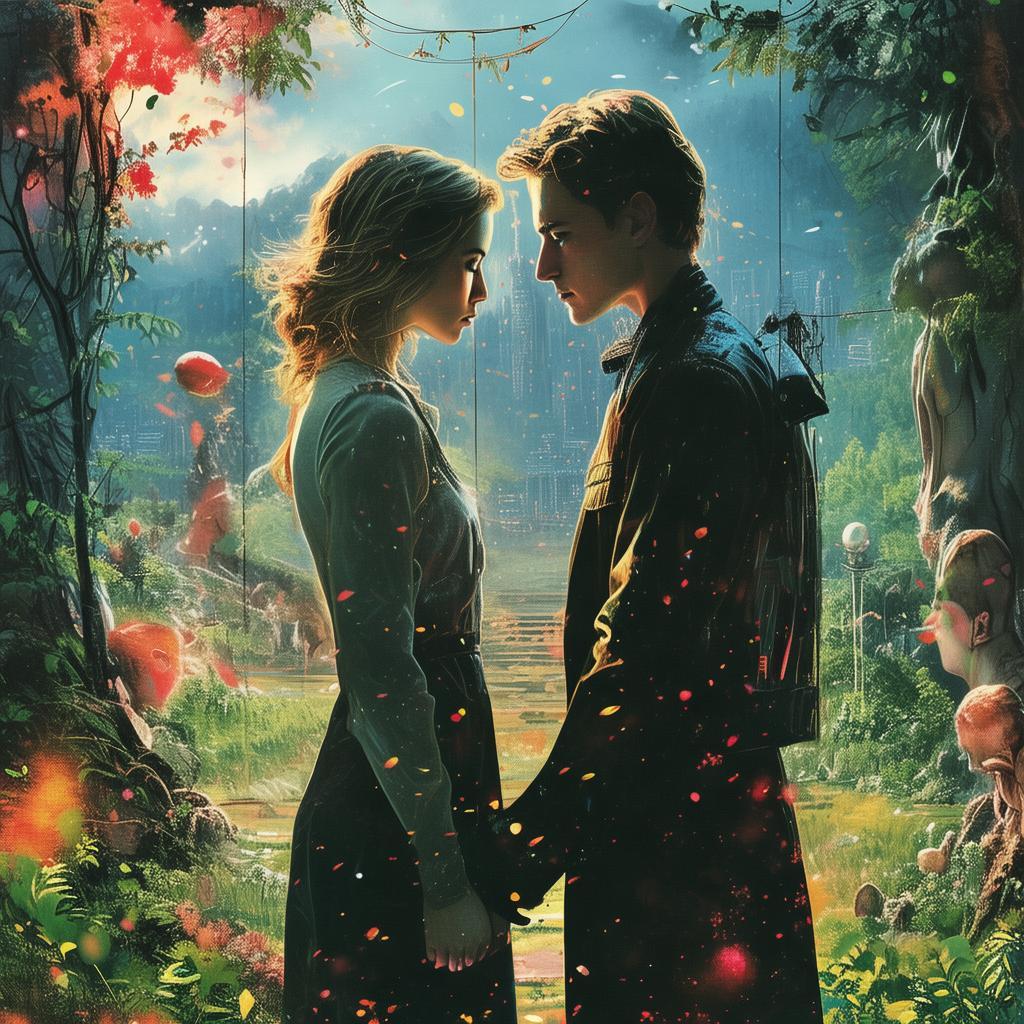The Lovers of the Forbidden Tea
In the heart of a bustling city, shrouded in the mists of history, there stood an enigmatic Cantonese tea house. Known for its serene atmosphere and the finest oolong teas, the tea house was a sanctuary for the weary and the curious alike. Yet, beneath its tranquil facade, a web of mystery and deceit was slowly unraveling, and at its center was a love story that would change lives forever.
The tea house was run by a reclusive old man named Master Lee, whose face was as enigmatic as the stories he spun. He was known to serve only the most discerning patrons, each of whom came with a secret to share. One such patron was Liang, a young, ambitious writer with a penchant for the dramatic. Liang had heard whispers about the tea house's past, tales of unrequited love and tragic loss that seemed to echo from the walls.
One rainy evening, Liang found himself in the tea house, sipping on a delicate tea and contemplating the stories he would write. As he gazed out of the window, a young woman named Mei entered the establishment. She was striking, with eyes that held the promise of untold stories. Liang couldn't help but be drawn to her, and he felt an inexplicable connection to her presence.
Mei was a singer, struggling to make a name for herself in the cutthroat world of entertainment. She was haunted by a past that she couldn't escape, a love that had ended in tragedy. The man she loved, a famous composer, had disappeared without a trace, leaving her with nothing but memories and a haunting melody that she couldn't shake.
The night Mei arrived at the tea house, Master Lee seemed to sense her distress. He approached her and offered her a cup of tea, not just any tea, but one that he had kept hidden away, a rare and exquisite blend known only to him. Mei accepted the cup, and as she took her first sip, she felt a surge of emotion wash over her.
That night, Liang and Mei found themselves talking late into the night, sharing their stories, their dreams, and their fears. It was a rare connection, one that felt as if they had been searching for each other their entire lives. As the night wore on, they realized that their destinies were inextricably linked by the mysterious disappearance of Mei's composer.
Days turned into weeks, and Liang and Mei found themselves returning to the tea house more frequently. They became the talk of the establishment, a pair of lovers who had found solace in each other's company. Master Lee watched them with a knowing smile, as if he had seen this connection all along.
As their bond grew stronger, Liang decided to write a story inspired by their love. He sought out Mei to ask for her help, hoping to give voice to the melodies that had haunted her. Mei agreed, and together they worked on the story, each of them pouring their hearts into the words.
One evening, as they sat in the tea house, Liang revealed to Mei that he had discovered a hidden room behind the old wooden shelves. Master Lee had hinted at the room's existence before, but Liang had never pursued it. Now, he felt a strange compulsion to find out what lay beyond the door.
The door was heavy and slightly ajar, and as Liang pushed it open, a chill ran down his spine. The room was filled with old photographs, letters, and musical scores. In the center of the room stood a grand piano, covered in dust. It was the composer's piano, the one Mei had loved.

As they approached the piano, they found a letter, addressed to Mei. It was from the composer, revealing that he had not disappeared but had instead gone into hiding to protect Mei from a dangerous man who sought to silence her. The letter spoke of love, sacrifice, and the enduring power of music.
The revelation was shattering, and as Mei read the letter, she realized that her composer had loved her deeply, even in his absence. Liang, too, felt a profound sense of loss, understanding now the depth of Mei's pain.
In the aftermath of their discovery, Liang and Mei found themselves at a crossroads. They had to decide whether to pursue the composer or let him go, to continue their lives as lovers or to leave their pasts behind. Master Lee, who had been silent until now, spoke up.
He revealed that he had known the composer, and that the tea house was built on the very land where the composer's last performance had taken place. Master Lee had hidden the piano and the letters, hoping that one day, Mei would find them and understand the depth of her composer's love.
Liang and Mei sat on the piano bench, their hands reaching out to each other across the keys. They played a haunting melody, a love story written in notes, a testament to their connection and the composer's enduring legacy.
As the melody played, the tea house seemed to come alive, the walls echoing with the sound of music and the whispers of love. In that moment, Liang and Mei understood that their love was not just for each other, but for the music that bound them together, a love that transcended time and space.
In the end, Liang and Mei chose to honor the composer's memory by bringing his music back to life. They founded a music school, teaching the next generation to play the melodies that had once echoed through the tea house. And so, the Cantonese Tea House became more than just a place of solace and mystery; it became a sanctuary for love and music, a testament to the enduring power of love and the stories it tells.
✨ Original Statement ✨
All articles published on this website (including but not limited to text, images, videos, and other content) are original or authorized for reposting and are protected by relevant laws. Without the explicit written permission of this website, no individual or organization may copy, modify, repost, or use the content for commercial purposes.
If you need to quote or cooperate, please contact this site for authorization. We reserve the right to pursue legal responsibility for any unauthorized use.
Hereby declared.









